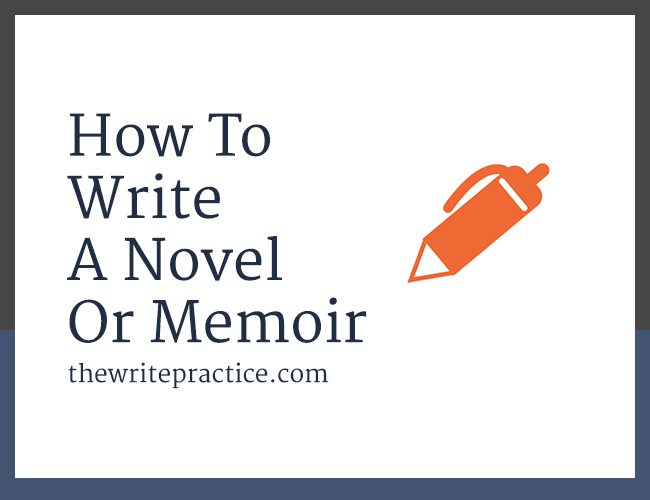How to Write a Novel or Memoir: Lesson 3
I’m constantly asking, “What makes some people succeed as writers and others fail?”
I even tested it, and found the writers who created a novel plan were 57 percent more likely to finish a book than those who hadn’t.
So what is a novel plan? And why is it so important if you want to finish your novel or memoir? That's what we talk about in this lesson.
I have one more lesson for you, and it's by far the most fun. If you don’t have an idea yet, OR even worse, if you have SO many ideas and you’re not sure which one is good, then I have good news for you, because that’s what we’re going to talk about in Lesson 4. See you soon!

We already talked about two of those things, things that published authors have: a consequence and a team. Both of those are so important. But I’ve found that the data behind this last piece always surprises people. It certainly surprised me when I first discovered it.
Because in all of our book writing classes we ask people to create a novel plan. A novel plan, or a book plan if you’re writing memoir, covers the writing process from beginning to end, from the initial idea to the final draft all the way to the publishing and marketing of your book.
After the course, I had a hunch that the people who had created a novel plan would be more likely to have finished their book at the end of the course. What surprised me as I looked at the data was just how much more likely they were to have finished.
In fact, the writers who created a book plan were 57 percent more likely to finish a book than those who hadn’t.
So what is a novel plan, and why is it so important if you want to finish your novel or memoir?
A book plan isn’t just about an outline or a synopsis, it’s about thinking through every single stage of the writing and publishing process BEFORE you start writing your book.
And we’ve found that it really contains 10 different components. We go into detail on each of these in our book writing course, but in the time we have, I’ll just list out the 10 components and then we’ll take a quick look at one of the most important parts.
So here are the 10 components of a novel plan:
- First, is The Premise, the main idea of the book.
- Second, is a Synopsis. A summary of your book’s story in one or two pages.
- The third component is the Outline, and by the way if you’re a pantser this can be extremely brief. For example, if you only know the ending or the beginning but you plan to make up everything else as you go along, your outline might just be that one scene.
- Fourth is an Intention, which speaks to how you’re going to write your novel
- The fifth component is your Deadline and Consequences (which we’ve touched on in Lesson 1).
- Sixth is the Reader Avatar. If you could visualize your book’s future audience as a single person, who would that person be?
- The seventh component is the Onliness Statement, which speaks to what will make your book completely unique.
- But you also want to know where your book fits in the market which is why the eighth component is the Competition Section, which looks at what other successful novels in the marketplace are similar to your book.
- Ninth is the Feedback and Editing section. Who will give you feedback during the writing process? Who will give you feedback when the book is finished?
- And last is the Personal Marketing section, which is about how you will publish your book and what you’ll do to promote it.
Again I go into detail on each of these in our book writing course, but the most important part of the plan, and the foundation of your novel, is your premise:
How do you write a premise?
A premise takes the whole idea of the book and distills it down to just 1 sentence for a novel. Or 2-3 sentences for a memoir.
For novelists, you can use the following formula, which has four key pieces:
- First, there’s a character, which you can describe in two words, like an injured pilot, or an old fisherman.
- Next, there’s a goal, the thing your character is trying to achieve.
- Third, there’s conflict, which you can also think about in terms of the antagonist.
- And finally, there’s a result at the end, consequences of the character’s success or failure.
Memoir writers have a little more leeway. If you’re writing memoir you have 2-3 sentences to summarize your book's main idea. Focus especially on the central problem that you were facing in your life and how you solved that problem.
If you don’t have an idea yet, OR even worse, if you have SO many ideas and you’re not sure which one is good, then I have good news for you, because that’s what we’re going to talk about in Lesson 4. And personally, I LOVE talking about book ideas, and this is going to be our best lesson yet, so be on the look out for that.
Thanks and see you soon!